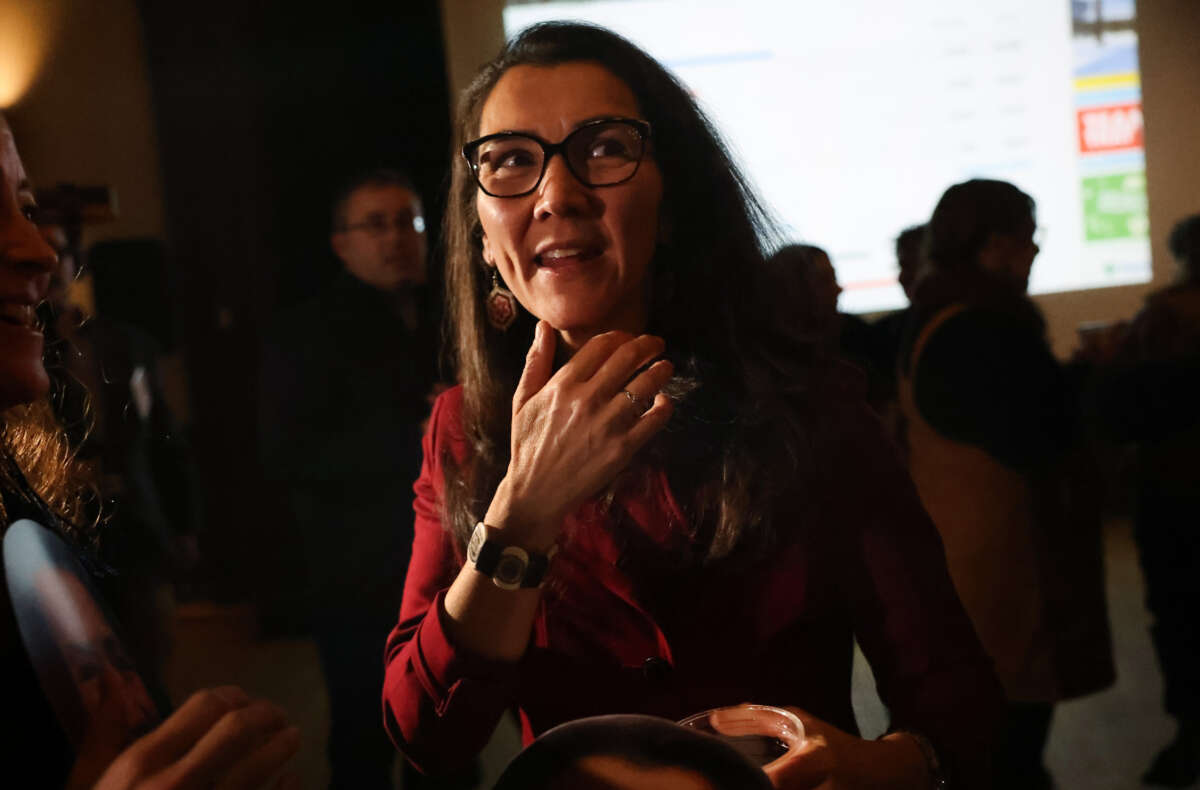As the impasse over choosing a speaker of the House of Representatives continues for a fourth day, Rep. Mary Peltola (D-Alaska) has expressed an openness to supporting a bipartisan “coalition” candidate to end the stalemate.
Around 20 far right Republicans have blocked GOP House leader Rep. Kevin McCarthy’s (California) attempts to be speaker in the first 11 ballots. In the 12th ballot, held on Friday, that number shrunk to seven — an improvement for McCarthy, to be sure, but still enough to block him from becoming speaker.
A person must secure 218 votes to become speaker if all members are present. With a GOP majority of just 222 members, McCarthy can only afford to lose four Republican votes.
Prior to the failure to pick a speaker on Friday, Peltola expressed a willingness to begin negotiations with the GOP to support a more moderate Republican for speaker — perhaps the most direct indication of support for the idea from any Democratic lawmaker so far.
“The gridlock over the Speaker vote is not normal or good for anyone. I am not enjoying this — I don’t think anyone is,” Peltola said on Thursday, according to Alaska Public Radio reporter Liz Ruskin.
Peltola noted that there “is serious legislating that needs to be done and infighting is distracting us from even starting to work on the many problems we face”
“[New York Rep.] Hakeem Jeffries is my choice for Speaker of the House,” said Peltola, who has voted for the Democratic leader of the House in each of the ballots so far. “That said, I have always been willing to work with people regardless of political party. If there are members who want to form a coalition majority like we often see in Alaska, I’m open to discussing that.”
It’s unlikely — but not impossible — that a coalition candidate will be nominated, as it would require Democrats and Republicans to select a candidate who both parties could potentially agree on. It would also require major concessions to Democrats, including, potentially, a shared governance agreement in the House.
Negotiations between Republicans indicate that McCarthy is still attempting to secure the support of the far right lawmakers who oppose him, though many of his concessions will significantly weaken the position he’s seeking to hold. If these negotiations continue to result in McCarthy gaining votes on the House floor, it’s less likely that a coalition candidate will be nominated.
Due to the failure to select a speaker on Friday, it’s possible that ballots will continue through the weekend and into next week as negotiations between the two GOP factions come to a head. It’s unclear, however, whether McCarthy will be able to convince the remaining holdouts to support him.
During a speech on the floor prior to the 12th ballot, Rep. Matt Gaetz (R-Florida), one of the staunchest anti-McCarthy Republicans, implied that he and others wouldn’t ever vote for McCarthy. “Mr. McCarthy doesn’t have the votes today, he will not have the votes tomorrow, and he will not have the votes next week, next month, next year,” he said.
